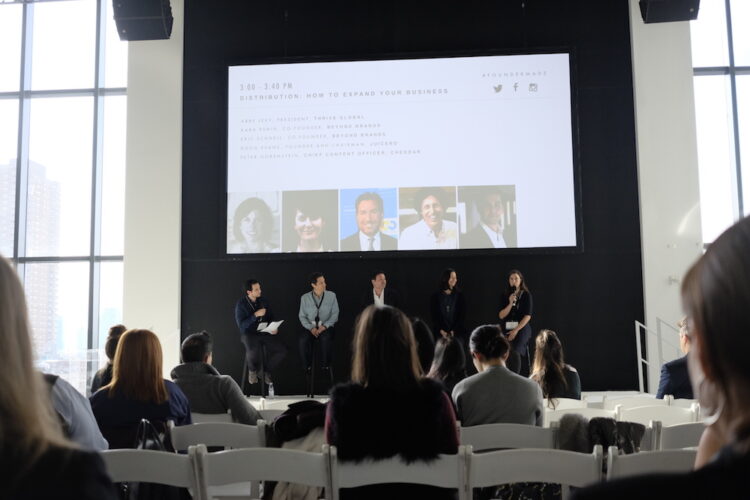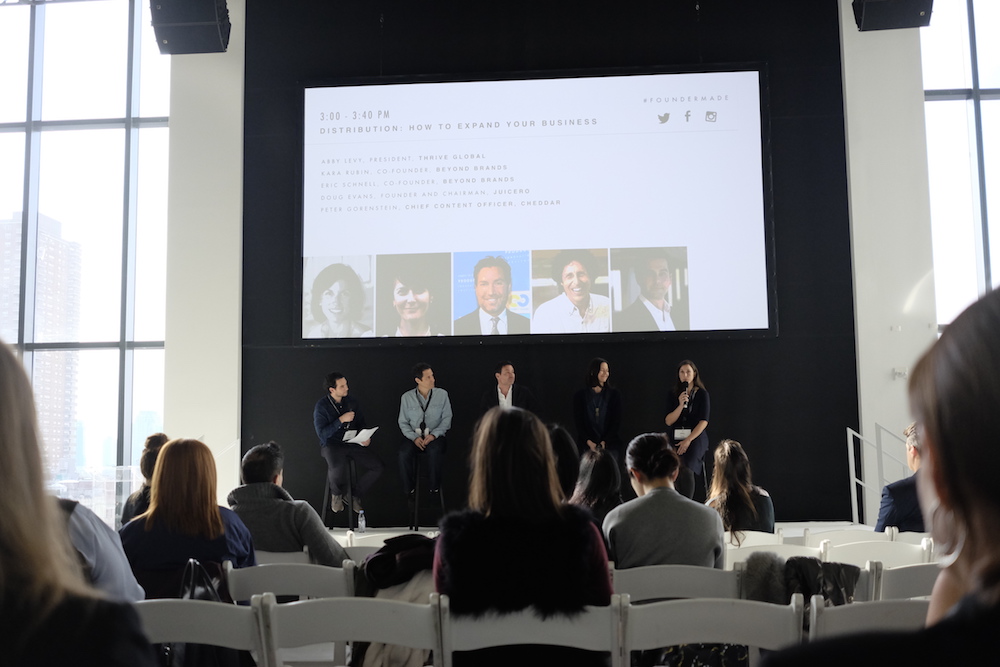The FounderMade Wellness Summit was a gathering of both established and up-and-coming companies in the wellness space. Hosted in Tribeca, the conference boasted a discovery lounge of wellness products including natural deodorant by PiperWai, yoga gear by B Yoga, the mesmerizing Juicero juicer, and many, many more food, beauty, and wellness products.
Of the many panels of the day, I was inspired to hear from Coss Marte, the founder of ConBody. Carte was making upwards of $2 million a year when he was arrested and sentenced to prison. He channeled his energy from his 7 year long prison stay into creating a rigorous fitness program and training his fellow inmates. Upon release from prison, he realized that he had an opportunity with his new skill set to solve a much needed problem: providing employment opportunities for ex-convicts, who often struggle to find employment after their release. Marte opened his own training center, ConBody, and offers “prison style bootcamps.” Talk about making things happen.
I also enjoyed the “Distribution: How to Expand your Business” panel, moderated by Peter Gorenstein, Chief Content Officer at Cheddar. We heard from Abby Levy, President of Thrive Global, Kara Rubin, and Eric Schnell, Co-Founders of Beyond Brands, and Doug Evans, Founder and Chairman of Juicero.
The panel skewed heavy on food products given the expertise and domain of three quarters of the panelists, yet many of the lessons were widely applicable.
On the topic of building the foundations of a new brand, several of the panelists focused on honing in on your message and unique selling point. Rubin mentioned that when you are trying to sell your product— regardless of if you are talking to a customer, buyer, distributor, or investor, focusing on what differentiates your product in the market. Why is your product the best, the most unique? And how will it expand the category for them?
Levy stressed that even if you are a cash-strapped startup, you might want to consider investing in PR at the beginning. That way you have an internet tail, and it will build up your credibility immediately. You can back off a little later, but starting with a PR push will help you get on your feet.
Evans agreed— he launched Juicero with a video that went viral and had over a million views.
As for determining pricing, Evans pointed out that it’s a combination of art and science. He originally though individuals would consume 5 packs of Juicero a week and found that people consumed, on average, 10 packs. He’s now looking to scale the company quickly to better take advantage of their facilities and reduce costs and prices. Schnell argued that from a distribution standpoint, to consider the fact that once it could be a full year cycle to get on the shelf at a major retailer, and brands need to factor that in when it comes to cash flow and pricing. Once it’s on the shelf, Rubin added, it’s no walk in the park— you have to demo your product and make sure it succeeds to keep your shelf space.
Levy emphasized that often the most successful companies ensure their offering is part of a habit that their consumer forms. At Thrive, they’ve created a habit for many of their consumers that look forward to their newsletter every Thursday. If you solve someone’s problem, she pointed out, you will sell your product easily. That is true with your pitch too— you need to show how you are in your business long term to “make people’s lives better.”
Gorenstein asked about common weaknesses in companies starting out, and Schnell was quick to advise against going to production without having a distributor in place. Evans cautioned startups to not leave everything up to hope but rather making a plan and allowing for flexibility. Start with smaller quantities which will allow you to be more nimble. Rubin further emphasized new companies should be open to pivoting and responsive to their customer needs. By spending time demoing and with the customer, you will better understand them and better be able to tailor your product.
As for closing remarks, all the panelists emphasized that while entrepreneurship is certainly challenging, sometimes even daunting, the payoff is worth it, especially when you are making a true impact.




